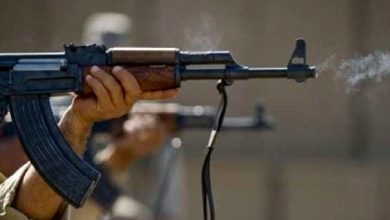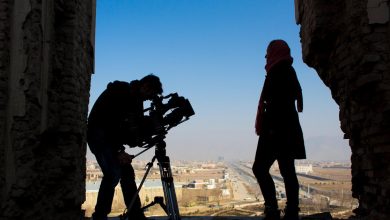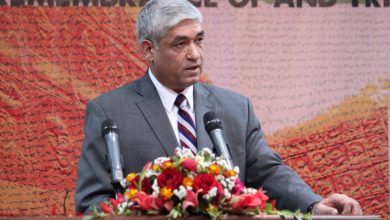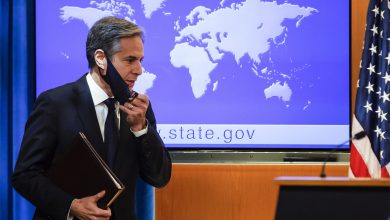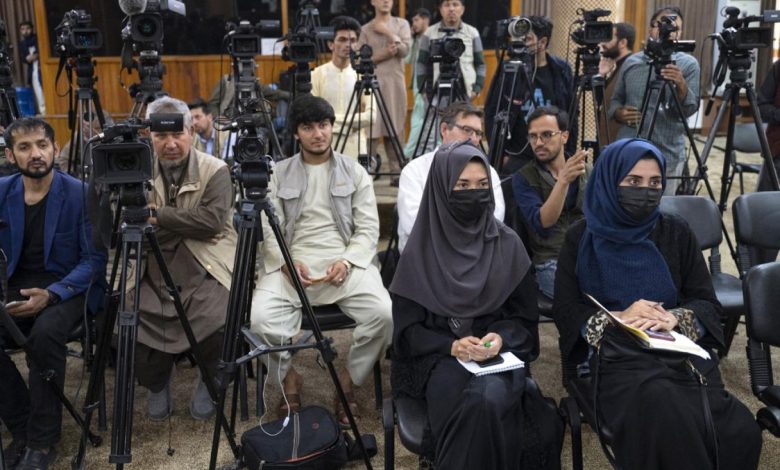
Information Crisis and the Courage of Women Journalists in Afghanistan
Sakina Adib
Bayan News – Exactly two years ago today, Kabul, the capital of Afghanistan, fell to the forces of the Islamic Emirate. On that day, everyone was gripped with fear and uncertainty, not knowing exactly what was happening. However, more importantly, there was a lack of an information source, and whatever information was available, it was only on social media. Everyone became their own reporter, which further trapped everyone in fear and terror.
Two years later, the information void still persists in Afghanistan, and journalists, especially women journalists, are trying to reflect the events in Afghanistan accurately and impartially. What seems to be important is their courage and bravery to be present among the people, despite severe restrictions on women and girls. They occasionally attend press conferences held by the interim government officials in Kabul.
However, women journalists narrate their daily lives alongside their media activities in this report, believing that the security situation has improved but the future remains uncertain and complex, and no one knows what fate awaits them.
Some of them express concerns about the future of information dissemination and the continuation of restrictions on the path of women and girls in interviews with Bayan News.
Mashhouda, a prominent journalist from a news agency and one of the active women journalists in Kabul, describes the current situation of her colleagues as follows: “Unfortunately, with the arrival of the Islamic Emirate, many women journalists have lost their duties and have become housebound. However, fortunately, a significant number of women journalists have found their way into media institutions under the shadow of the Islamic Emirate government and continue their information dissemination process.”
Mashhouda, however, emphasizes that due to the numerous restrictions, their numbers are still fewer compared to the previous government, and that is why freedom of expression, like in the past, does not exist.
Meanwhile, Salima Rahmani, a journalist from Salam Watandar, adds to the events, saying that despite being in the second year of the reestablishment of the Islamic Emirate’s control, restrictions against women journalists still persist.
She says, “As women journalists, we still face difficulties in accessing information. We still do not have firsthand access to news. There are still hindrances to the presence of women journalists in many gatherings.”
She further explains that just a while ago, when she wanted to cover university activities, she was prevented from attending until she convinced the relevant security personnel and obtained permission to enter the event.
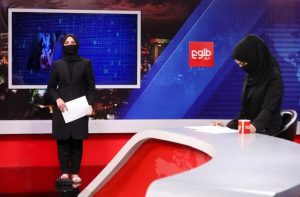
Salima continued, “I couldn’t go to the office empty-handed because it would show my incompetence, and they might not allow me to attend meetings anymore. I had to wait for an hour until they allowed me to cover the news.”
This female journalist further explained that whenever they try to conduct interviews, once the person on the other end of the line realizes they are speaking to a woman, they refuse to be interviewed or abruptly end the call. Due to these limitations, female journalists face significant challenges in their reporting.
Yasamin, a television journalist from Shamshad TV, also confirmed these concerns and stated that over the past two years, female journalists have faced serious limitations in their reporting.
She described the challenges faced by female journalists, saying, “Although the work of female journalists has not been without difficulties during these two years of media transformation, they have faced difficulties in accessing information, and authorities have not created a conducive environment for female journalists. Various restrictions have been imposed on journalists, including wearing a mask, which is a serious problem for program presenters.”
According to Yasmin, despite the numerous challenges faced by female journalists, there are also positive aspects within the Islamic Emirate, and so far they have not hindered the work of female journalists.
Yasamin clearly expressed her desire for the authorities of the Islamic Emirate to reduce the restrictions that impede the work of female journalists.
These concerns arise as eight local journalists from seven provinces of Afghanistan have been detained by intelligence agencies on the eve of the second anniversary of the Islamic Emirate’s re-establishment. The interim government officials in Kabul have announced that any journalist who operates contrary to the current system’s policy will be subject to investigation.



